You’ll find three excellent pickle solutions for soldering success: sodium bisulfate offers professional-grade cleaning without toxic vapors, citric acid provides a safe, environmentally-friendly option perfect for home studios, and traditional sulfuric acid delivers maximum cleaning power for heavy-duty applications. Each solution effectively removes oxidation and flux residues but requires different safety precautions and dilution ratios. The choice depends on your workspace requirements and cleaning intensity needs, with proper preparation techniques ensuring best results for your specific soldering projects.
Sodium Bisulfate: The Professional’s Choice for Daily Use
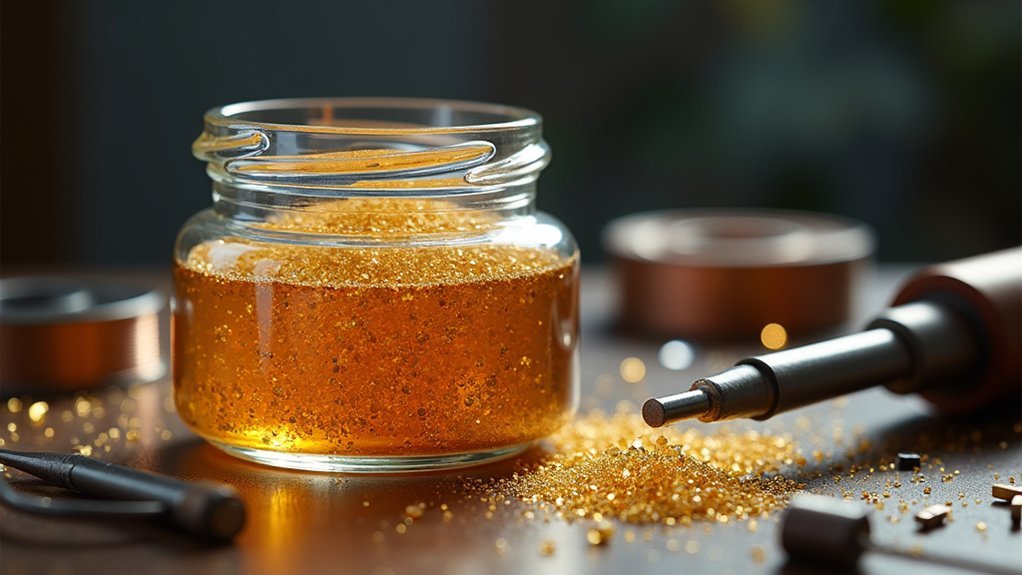
When you’re looking for a reliable pickle solution that won’t fill your workspace with dangerous fumes, sodium bisulfate stands out as the professional jeweler’s go-to choice.
This non-toxic pickling solution effectively removes oxidation and flux residues from precious metals without the hazardous vapors that stronger acids produce.
You’ll find sodium bisulfate incredibly safe for daily use when properly diluted. Simply mix a quarter cup with two quarts of water, guaranteeing complete dissolution before heating in your crock pot.
The solution maintains its effectiveness for months with proper care—just keep it covered and watch for contamination.
When disposal time comes, neutralize your used solution with baking soda to meet local regulations and guarantee safe handling throughout the process.
Citric Acid Solutions: Safe Non-Toxic Alternatives for Home Studios
For home studio work where even sodium bisulfate feels too aggressive, citric acid offers an exceptionally gentle yet effective pickling solution. This organic safety pickle removes oxides and flux residues without the hazards of traditional acids like sulfuric or hydrochloric acid.
You’ll find citric acid solutions work more slowly than stronger alternatives, but they’re perfect for delicate materials and concerned safety-conscious makers.
Simply dissolve 1 tablespoon of citric acid in 60ml of water for an environmentally friendly pickle solution. Heat to simmering point for ideal cleaning reaction, though you’ll need extra time for thorough results.
Mix one tablespoon citric acid with 60ml water, heat to simmer, and allow extra time for gentle yet thorough cleaning results.
- Non-toxic and safe for home studio environments
- Effectively removes oxides and flux residues from metal surfaces
- Simple preparation: 1 tablespoon citric acid per 60ml water
- Works best when heated to simmering temperature
- Environmentally friendly alternative to harsh chemical acids
Traditional Sulfuric Acid Pickles: Maximum Strength for Heavy-Duty Applications
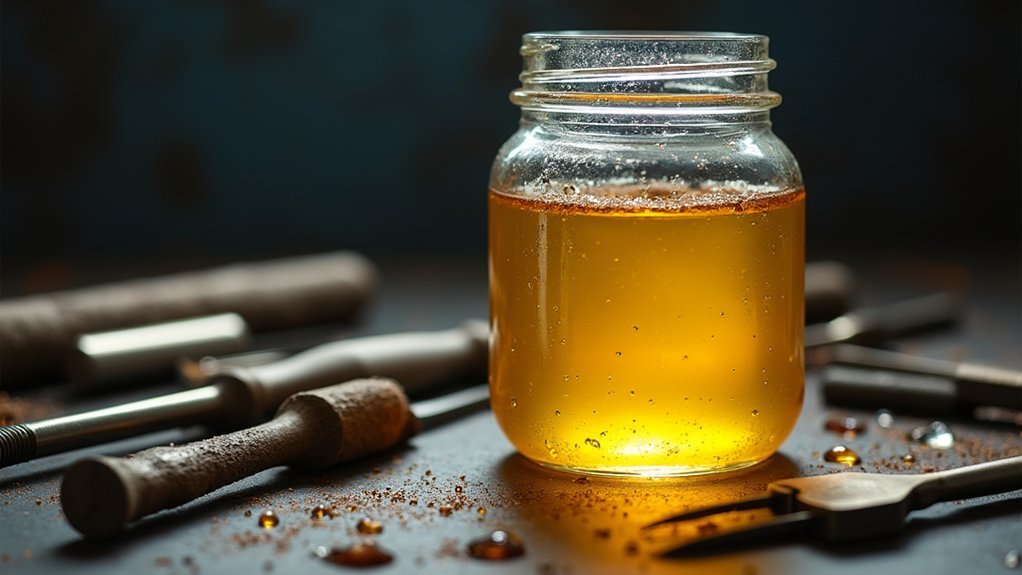
Although citric acid solutions offer gentle cleaning power, traditional sulfuric acid pickles deliver unmatched strength for demanding metalworking tasks. You’ll find these pickling solutions, typically diluted to 10-20%, exceptionally effective at removing stubborn oxides and flux residues from soldered objects.
However, you must exercise extreme caution when handling sulfuric acid. Its fuming nature demands protective gear, proper ventilation, and careful handling to prevent burns and inhalation hazards.
You’ll need to monitor your solution regularly, as it can concentrate dangerously without proper maintenance. Replace your sulfuric acid pickle when it becomes dirty or copper-saturated to maintain peak performance.
While these solutions provide maximum cleaning strength, consider safer alternatives like sodium bisulfate for general use unless you specifically require sulfuric acid’s heavy-duty capabilities.
Frequently Asked Questions
How Do You Make Pickling Solution for Soldering?
You’ll dissolve sodium bisulfate in water using one-fourth cup per quart, or heat vinegar and add salt until saturated. Always add acid to water, never reverse this order for safety.
Should You Pickle Before Soldering?
You should pickle before soldering if your metal surfaces have oxidation or contamination. It’s not always necessary, but pickling guarantees cleaner joints and better solder flow on previously handled pieces.
How Long to Keep Silver in Pickle?
You should keep silver in pickle for 5-10 minutes for standard solutions. If you’re using stronger acids, monitor closely. For gentler options like citric acid, extend the time to 15-20 minutes for effective cleaning.
What Is the Best Pickle for Copper?
You’ll find sodium bisulfate (safety pickle) works best for copper since it effectively removes oxidation without dangerous fumes. Citric acid offers a safer alternative, though it’s slower and requires more product.
In Summary
You’ve now got three proven pickle solutions to tackle any soldering cleanup challenge. Whether you’re choosing sodium bisulfate for daily workshop reliability, citric acid for safe home use, or sulfuric acid for heavy-duty projects, you’ll achieve professional results every time. Don’t let oxide buildup compromise your joints—select the right pickle solution for your specific needs and you’ll see the difference immediately in your work quality.

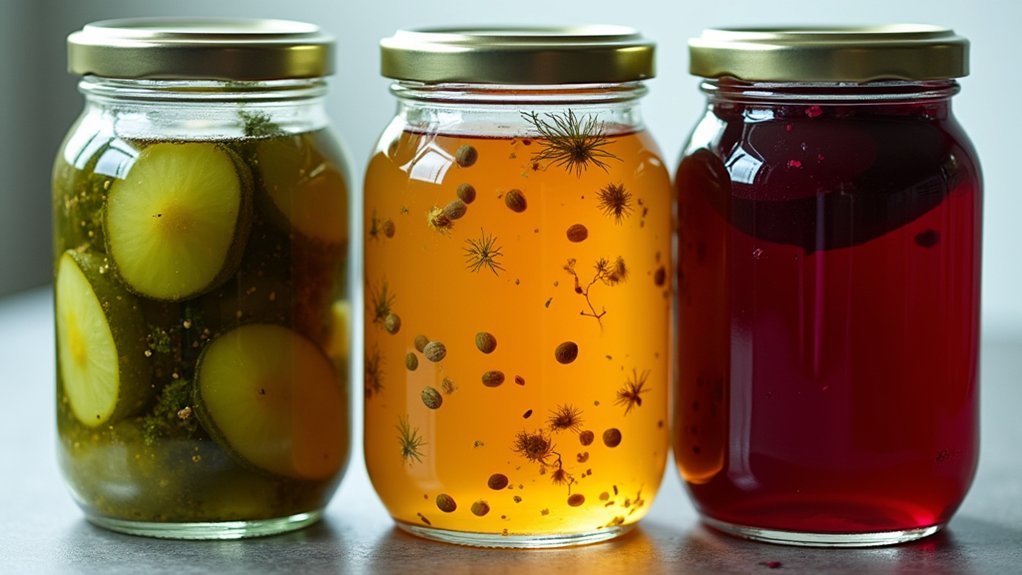
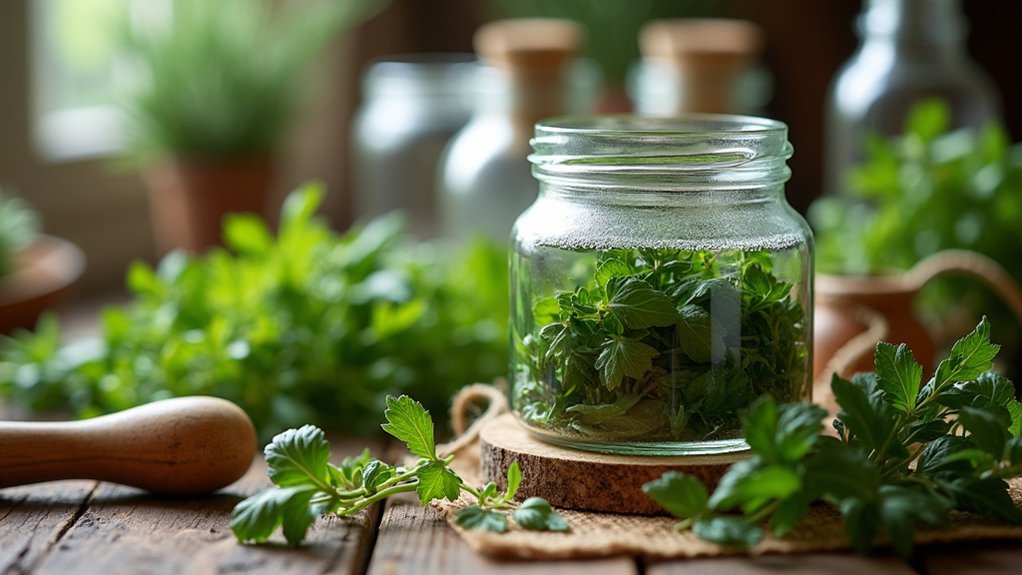
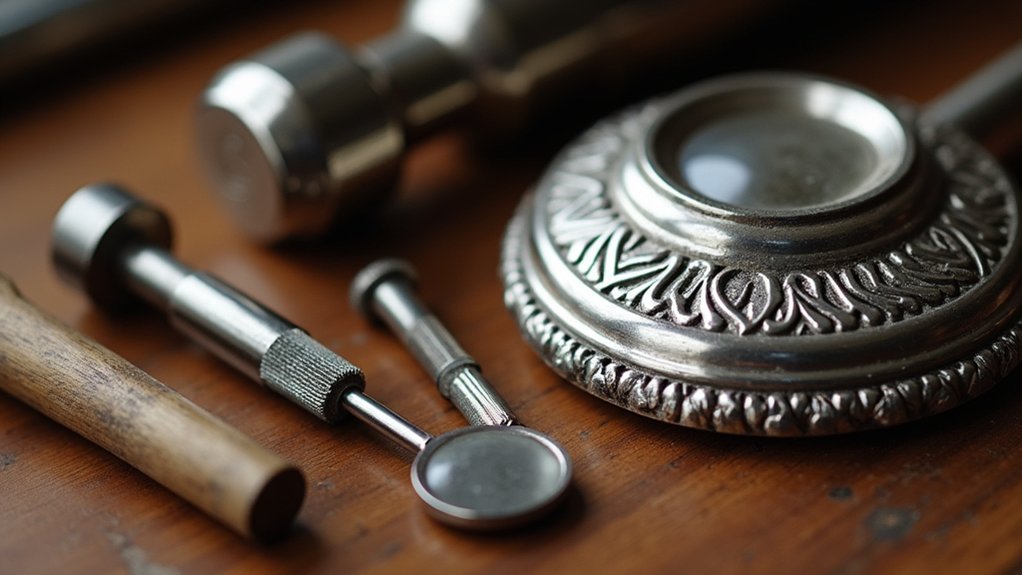
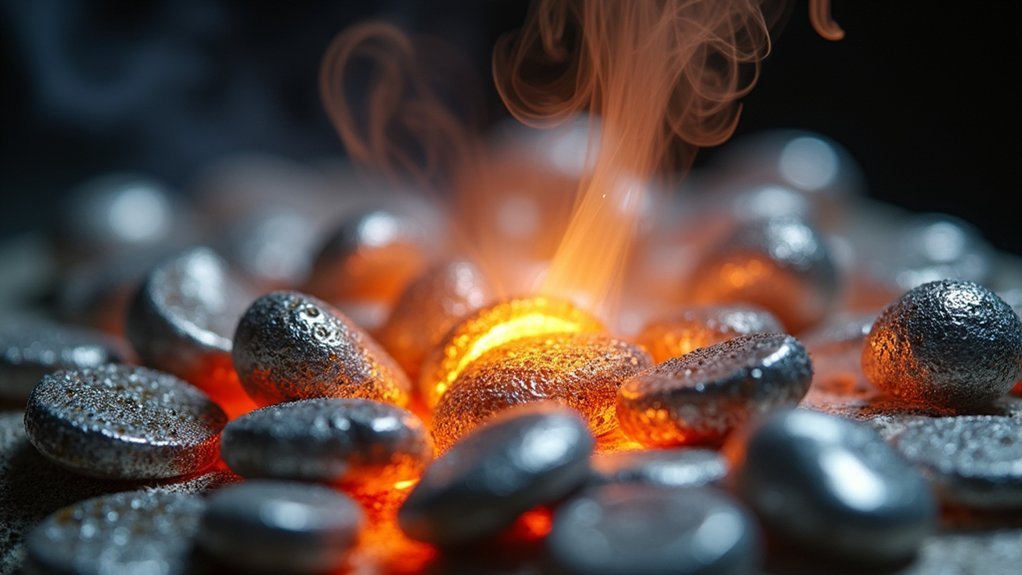
Leave a Reply